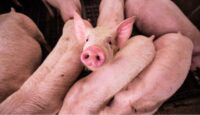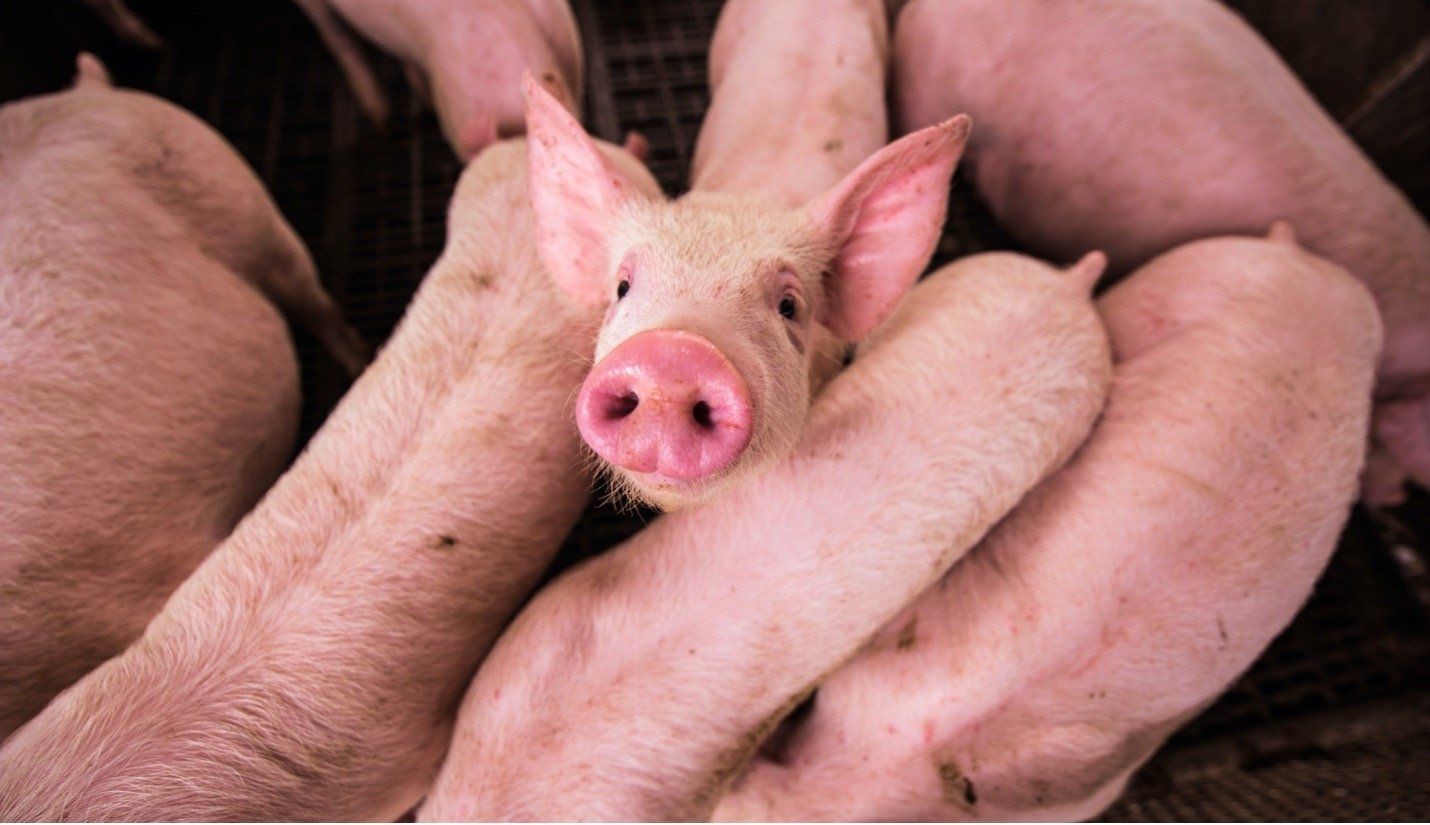2022 TOP 10 BLOG
State by State: Setting Farmed Animal Welfare Standards
VJEL Staff Editor: Bailey Soderberg
Faculty Member: Pamela Vesilind

2022 is set to be a landmark year for the animal welfare movement in the United States. Both Massachusetts and California are attempting new regulations that could affect the quality of life for pigs, calves, and hens across the country. Each state passed citizen-initiated ballot measures that take effect on January 1, 2022, impacting the use of cruel confinement methods like gestation crates for breeding sows, battery cages for laying hens, and veal crates for calves. However, looming legal challenges and legislative delays threaten the adoption of these animal welfare regulations.
Ballot Initiatives
In 2016, Massachusetts voters approved Question 3. As an indirect initiated state statute, Question 3 required proponents to gather a certain amount of citizen signatures in support before the statute was sent to legislature, and further signatures were required to place the measure on the ballot after legislative review. The resulting law prohibits confinement of an egg-laying hen, breeding sow, or veal calf in a space that “prevents the animal from lying down, standing up, fully extending its limbs, or turning around freely.” A controversial provision requires all shelled eggs, whole pork, and whole veal sold in Massachusetts to meet this space requirement, whether produced in-state or out-of-state. Business owners must rely in good faith on a written certification (or guarantee of compliance) by a supplier or face a civil penalty up to $1,000 for each violation.
Massachusetts’ confinement standards mirror those in a 2008 California ballot initiative, Proposition 2. In 2018, Proposition 2 was amended by Proposition 12. As of 2015, California law prohibited the sale of shelled eggs produced in facilities that do not meet minimum space requirements; this was extended to liquid eggs in 2020. Restrictions on the sale of veal from crated calves also began in 2020. Sales restrictions on whole pork, requiring the most significant industry alterations, will be effective on January 1, 2022. This mandate spotlights a split in the pork industry. It favors Cargill, Inc., which phased out sow gestation crating in company-owned and contract farms by early 2015. Smithfield Foods, the U.S. division of China-based WH-Group, made limited progress in converting to group housing. But Tyson Foods and Seaboard Farms resisted, even defying pressure from shareholders.
For decades, animal advocates campaigned to end cruel farming practices like gestation crates, battery cages, and veal crates. Since 2008, a dozen other states have phased out one or more of these industry practices. California and Massachusetts were first to support the production standards by banning the in-state sale of non-complying products. Washington joined in 2019, phasing out battery cages and prohibiting egg sales from those facilities in 2024. With the exception of California’s $1 billion U.S. egg industry, in-state space requirements do not significantly impact the agricultural sector in Massachusetts and California because most of their pork, veal, and eggs are imported from other states.
Environmental Impacts
Improved standards in animal agriculture are crucial to the health of animals, humans, and the environment, especially considering concentrated animal feeding operations (CAFOs) produce most animal products in the United States. With the COVID-19 pandemic continuing into 2022, zoonotic diseases pose an ongoing threat to humans and animals. CAFOs threaten to foster the next pandemic, confining thousands of animals in industrial buildings. High stress, injuries, and waste buildup weaken their immune systems, creating a perfect environment for pathogens to travel rapidly and replicate efficiently. Moreover, close confinement and concentration of animals contaminates surrounding water, soil, and air. Large-scale livestock operations create excessive waste, often used as fertilizer in nearby fields or stored on the premises. Soils become overloaded, causing buildups of nutrients like nitrates that seep into surface and groundwater. Runoff from rain spreads waste even farther, with phosphorous fostering harmful algal blooms in lakes and oceans. Beyond methane emitted from animals themselves, animal waste releases damaging amounts of ammonia into the air.
Legal Challenges
Food and agriculture corporations challenged state animal welfare regulations alleging Dormant Commerce Clause (“DCC”) violations. The DCC doctrine is a court-made test inferred from Congress’s Article I, Section 8 authority to “regulate Commerce… among the several states.” Over time, courts developed an implied prohibition against state laws that “substantially burden interstate commerce” or regulate out-of-state producers differently from in-state producers. The common test, from Pike v. Bruce Church, Inc., balances state interests served by non-discriminatory state laws against the law’s burden on interstate commerce.
Animal agriculture associations and farming states have resorted to the courts, attempting to defeat welfare standards they argue are impermissibly coercive. Some challenges failed on procedural grounds, like lack of personal jurisdiction and subject matter jurisdiction. In Indiana v. Massachusetts and Missouri v. California, state plaintiffs attempted to invoke the Supreme Court’s original jurisdiction to evaluate a DCC challenge. At the direction of the Supreme Court, Solicitor General Noel Francisco filed a brief on behalf of the United States for both the Massachusetts case and the California case, emphasizing that the Supreme Court only grants original jurisdiction for cases or controversies between states in rare circumstances. The Supreme Court declined the plaintiffs’ motions in both cases in 2018 and 2019.
In Iowa Pork Producers Association v. Bonta, the plaintiff claimed California’s sale ban on non-compliant pork violates the DCC, due process, and equal protection, among other provisions. The suit failed because the pork producers sued in Iowa. To assert authority over a non-resident defendant, a court must establish personal jurisdiction, requiring a party have minimum contacts with the forum that comport with “fair play and substantial justice.” The federal district court in Iowa found that California did not intentionally pass Proposition 12 to harm Iowa, the law was not aimed at Iowa, and the brunt of the harm would not affect Iowa. Ultimately, minimum contacts did not exist to justify exercising personal jurisdiction over California.
So far, only two cases against the sale bans cleared procedural hurdles and proceeded to the merits of a DCC challenge. In North American Meat Institute v. Becerra, the U.S. District Court for the Central District of California denied North American Meat Institute’s (“NAMI”) motion to preliminarily enjoin California’s veal and pork sales laws from taking effect after determining NAMI failed to show a likelihood of success on the merits. The court decided Proposition 12 is not discriminatory because it does not have a discriminatory purpose or effect and treats in-state and out-of-state producers equally. Further, the court was skeptical of NAMI’s claim that California is impermissibly imposing its own animal production standards on industries in other states—called “extraterritorial regulation.” The court decided the plaintiff’s claims were “ultimately a complaint about the cost of complying with Proposition 12’s requirements.” The regulations change only how meat is produced, not where the meat is produced. On appeal, the Ninth Circuit Court of Appeals affirmed. In 2021, the Supreme Court denied certiorari.
The Ninth Circuit also reviewed a pork industry challenge against Proposition 12 in National Pork Producers Council v. Ross. The court addressed the National Pork Producers Council’s (“NPPC”) main argument of impermissible extraterritorial regulation, determining that states “may require out-of-state producers to meet burdensome requirements” without infringing on the DCC. While the court acknowledged cost increases might occur, it determined costs incurred by production changes do not substantially burden interstate commerce. “Proposition 12 will have dramatic upstream effects and require pervasive changes to the pork production industry nationwide,” but NPPC failed to state a violation of the DCC. NPPC appealed to the Supreme Court, which is likely to consider the petition before the end of 2021.
Beyond litigative efforts, members of the pork industry lobbied for delays. In October 2021, the Massachusetts House passed a bill to update the 2016 Question 3 ballot initiative with specific square-foot measurements. The amendment would also delay implementation of the regulations specifically related to the sale of pork. If the Senate supports the bill, the provision instating a pork sale ban would be delayed until 2023. Estimates indicate less than 4% of pork producers are currently in compliance and prepared for the original January 2022 deadline.
Despite ample notice and multiple years to update facilities, animal agriculture industry members resisted change and challenged regulations in courts. Now, instead of working on compliance, producers are taking advantage of the pandemic, global supply chain delays, and price inflations to justify their reluctance to adhere to new animal welfare standards.
Looking Forward
Environmentalists often overlook animal suffering in favor of environmental topics centered around human interests. To improve the environment effectively, we must address the environmental and ethical implications of exploiting farmed animals. While measures imposed by the sale bans may provide incremental improvements, their value lies in the potential to define future state action in regulating food systems and animal welfare. Ballot measures could help citizens take charge of decision-making and push environmental or animal interests to form laws. The survival of Proposition 12 and Question 3 could solidify the use of voter initiatives to determine food and animal law policies that reflect the changing values of our society.

